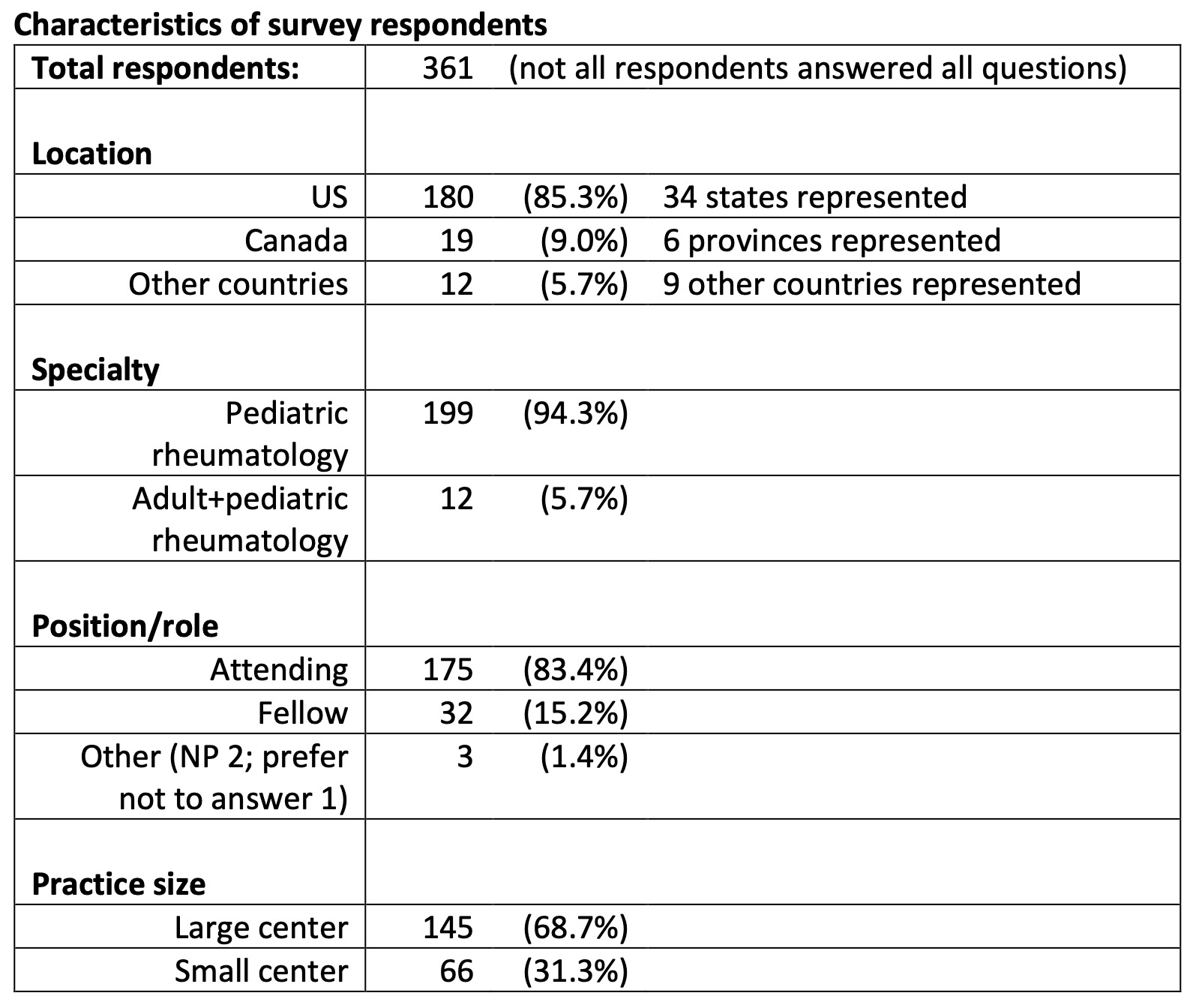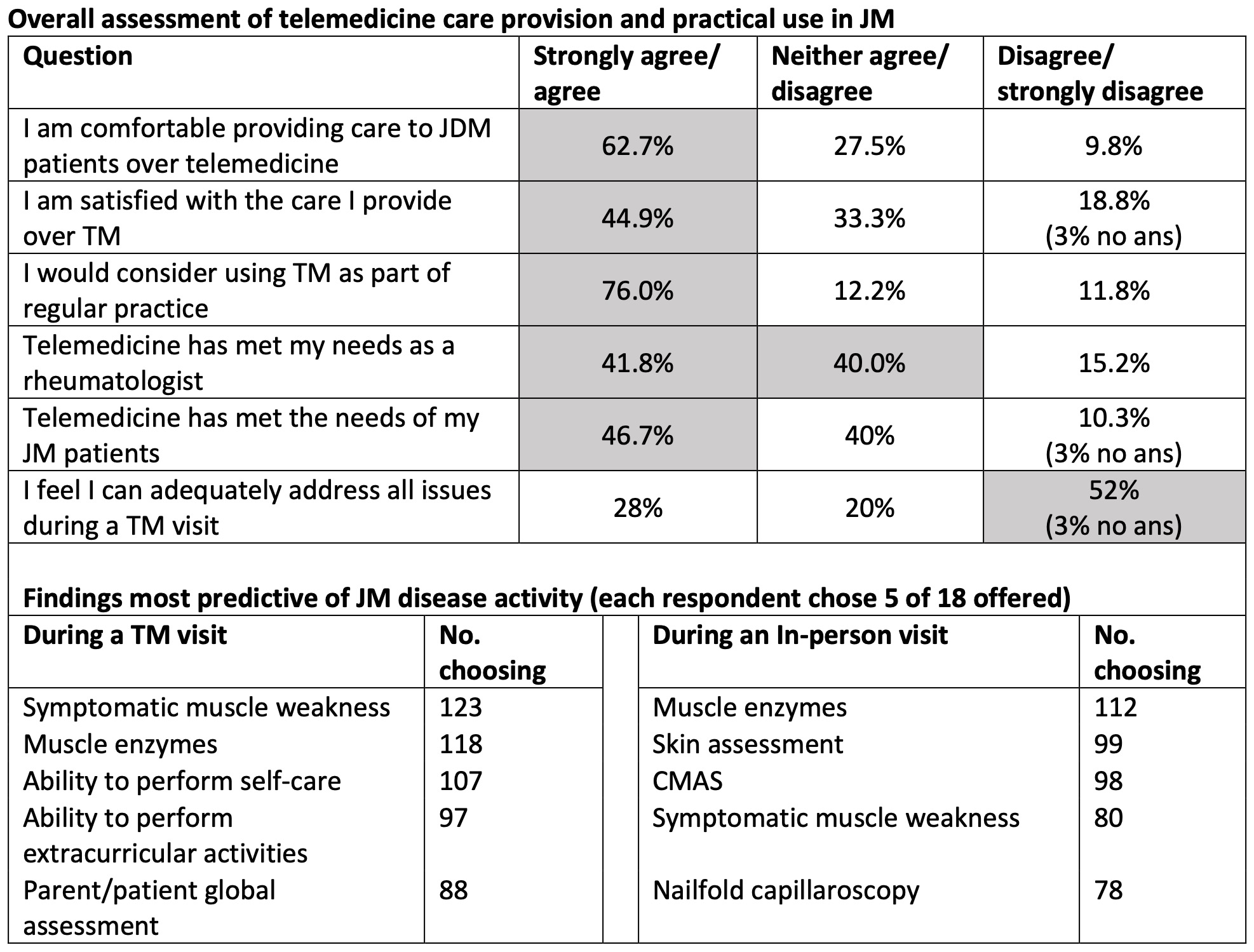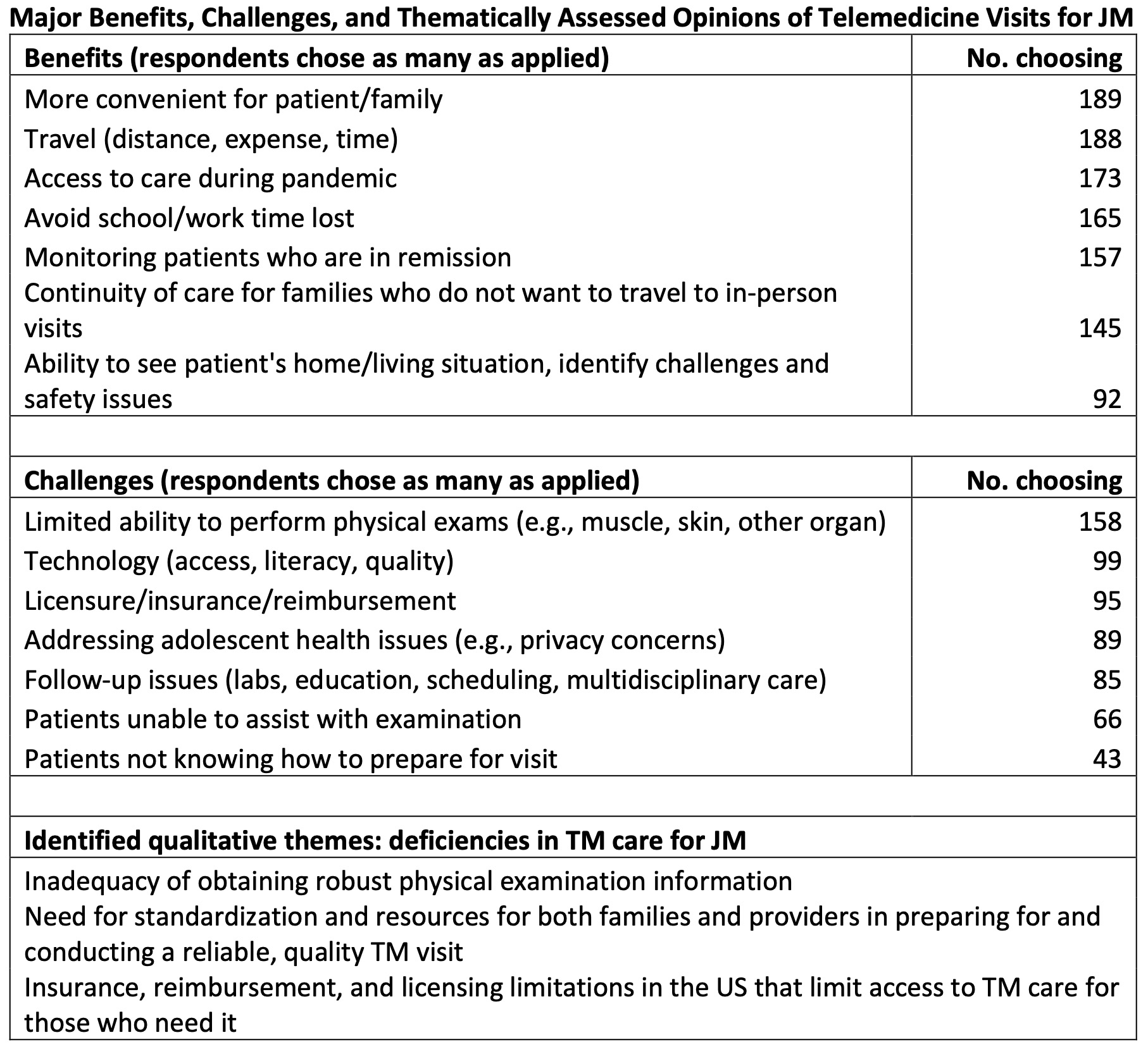Session Information
Session Type: Poster Session A
Session Time: 6:00PM-7:00PM
Background/Purpose: Care of patients with juvenile myositis (JM) involves complex assessments performed by specialized healthcare providers (HCPs). Restrictions during the COVID-19 pandemic required the rapid adoption of telemedicine (TM) for evaluation and management of patients. With partial return to in-person care, we sought to understand HCPs current experience with and opinions of TM care.
Methods: A REDCap survey was sent to Childhood Arthritis and Rheumatology Research Alliance (CARRA) and Pediatric Rheumatology European Society (PReS) HCPs from February-September 2022. Quantitative data were analyzed using descriptive statistics and qualitative data were thematically analyzed. Respondents were asked about use of telemedicine, its current place in their provision of JM care, issues, concerns, perceived benefits, and expectations and needs for future use.
Results: There were 361 respondents, although not all answered all questions. Demographic data are presented in Table 1. TM use: Five percent pre-pandemic TM use in JM increased to 87% during the peak of the pandemic but is now 25%. HCPs prefer not to see JM patients by TM; TM visits currently are infrequently offered but often accepted when offered. Most HCPs endorse specific criteria for when a TM visit could be appropriate (e.g., stable disease; family preference; logistics). These align with their opinions on the strengths and weaknesses of telemedicine care. Conducting the visit: TM and in-person visits differ in elements of history taking, organ system evaluation, and use of ancillary data (not shown). There is strong dissatisfaction with the absence of tools for accurate remote assessment of the physical exam, resulting in a shift to use of history information and ancillary studies to determine disease activity (Table 2). Evaluation of the visit: HCPs are generally comfortable providing care over TM, are satisfied with the care provided, and would consider continued use of TM. However they are less satisfied that telemedicine as currently practiced has met their needs or the needs of their patients, and strongly disagree that they can adequately address all issues raised during a TM visit (Table 2). Opinions of TM: HCPs recognize the benefits to patients of TM visits, but outline a consistent set of deficiencies causing dissatisfaction with TM care that fall into 3 themes (Table 3). Respondents offered specific, actionable proposals to address the issues raised (not shown).
Conclusion: TM care of JM patients has greatly diminished since its peak during the pandemic. Providers are comfortable with TM care but are concerned by its limitations, and restrict TM use accordingly. They proposed actionable steps to improve the utility, quality, and acceptability of TM care for patients with JM.
 Table 1. Characteristics of survey respondents.
Table 1. Characteristics of survey respondents.
 Table 2. Usage of telemedicine in the care of JM patients.
Table 2. Usage of telemedicine in the care of JM patients.
 Table 3. Major benefits, challenges, and thematically assessed opinions of telemedicine visits for JM
Table 3. Major benefits, challenges, and thematically assessed opinions of telemedicine visits for JM
To cite this abstract in AMA style:
Goh Y, Blier P, Lang B, De Guzman M, Fuller J, Houghton K, Cook K, Kim S, Carbone V, Tory H, Marcuz J, Chow A, McCann L, Papadopoulou C, Pilkington C, Tarvin S. Telemedicine Use in the Assessment of Juvenile Myositis: A Mixed-Methods Study of an International Healthcare Provider Experience [abstract]. Arthritis Rheumatol. 2023; 75 (suppl 4). https://acrabstracts.org/abstract/telemedicine-use-in-the-assessment-of-juvenile-myositis-a-mixed-methods-study-of-an-international-healthcare-provider-experience/. Accessed .« Back to 2023 Pediatric Rheumatology Symposium
ACR Meeting Abstracts - https://acrabstracts.org/abstract/telemedicine-use-in-the-assessment-of-juvenile-myositis-a-mixed-methods-study-of-an-international-healthcare-provider-experience/
